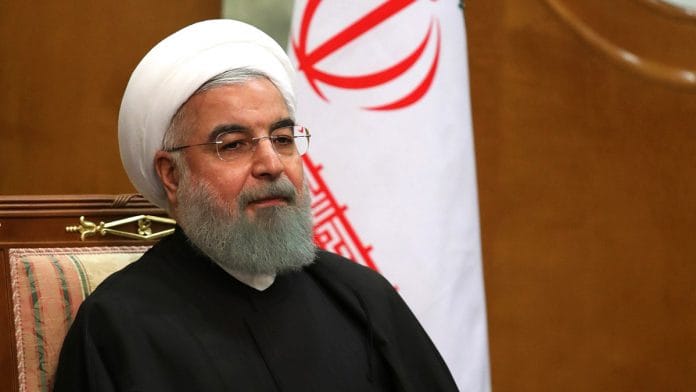Decision comes days after Qassem Soleimani was killed
New Delhi: Iran Sunday announced that it’s fully withdrawing from the 2015 nuclear deal, days after its top military leader Qassem Soleimani was killed in a US drone strike ordered by President Donald Trump.
Some experts say that for all practical reasons the 2015 nuclear deal is dead, but others say it isn’t and point out how Iran’s official statement suggests that it is still part of the deal.
“This step is within JCPOA (the Iranian nuclear deal) & all 5 steps are reversible upon EFFECTIVE implementation of reciprocal obligations. Iran’s full cooperation w/IAEA will continue,” tweeted Javad Zarif, Iran’s foreign minister Monday.
As 5th & final REMEDIAL step under paragraph 36 of JCPOA, there will no longer be any restriction on number of centrifuges
This step is within JCPOA & all 5 steps are reversible upon EFFECTIVE implementation of reciprocal obligations
Iran's full cooperation w/IAEA will continue
— Javad Zarif (@JZarif) January 5, 2020
What did Iran exactly say?
On Sunday, Iranian state television declared that the country was withdrawing from the 2015 nuclear deal.
The deal — Joint Comprehensive Plan of Action (JCPOA) — was signed between Iran, the five permanent members of the United Nations Security Council (China, France, Russia, the UK and the US) and Germany.
According to a report in the Reuters, Iran has decided to breach all limits imposed by the 2015 deal — “whether the limit on its number of uranium enrichment centrifuges to its enrichment capacity, the level to which uranium could be enriched, the amount of stockpiled enriched uranium or Iran’s nuclear Research and Development activities”.
An unnamed European diplomat told Reuters that the 2015 deal is “all but dead”.
In 2018, the US had announced its withdrawal from the deal. About a year later, in May 2019, Iran responded by partially withdrawing from the agreement.
Iran nuclear deal not dead yet
Richard Johnson, a former US state department official and a nuclear analyst, tweeted: “Lots of us thought Iran would announce a move to enriching at near 20%. It did not do that today. This is good news.”
Lots has already been said on the #Iran #JCPOA announcement, but a few thoughts: A thread:
Iran’s announcement today was as predictable as it was not. Lots of us thought Iran would announce a move to enriching at near 20%. It did not do that today. This is good news. 1/x
— Richard Johnson (@johnsonrc01) January 5, 2020
“Moving to 20% enrichment would have dramatically decreased the breakout timeline. Iran’s actions to enrich to 4.5% and exceed the 300 kg limits in the JCPOA have shorted that breakout timeline, but it still closer to one year than say six months (sic),” he added.
Johnson went on to cite Zarif’s above-mentioned tweet and said that Iran is still part of the deal “from a political perspective”.
“Media is characterising this as the end of the JCPOA, but Zarif’s tweet makes clear that Iran wants to say they are still IN the JCPOA, at least from a political perspective,” he tweeted.
Another nuclear analyst Vipin Narang has a similar observation.
“Ironically, despite Iran’s announcement that it won’t abide by enrichment levels and quantities set by JCPOA, it is still quite far from having enough enriched uranium for a bomb, let alone a functional arsenal because…of the JCPOA,” tweeted Narang.
https://twitter.com/NarangVipin/status/1213896228553068547?s=20






